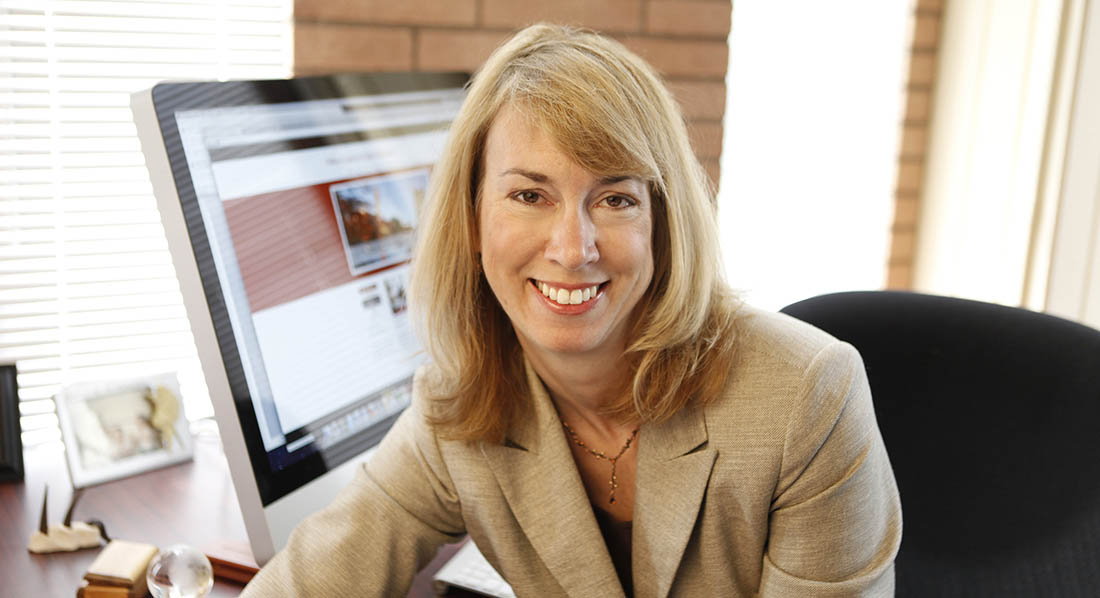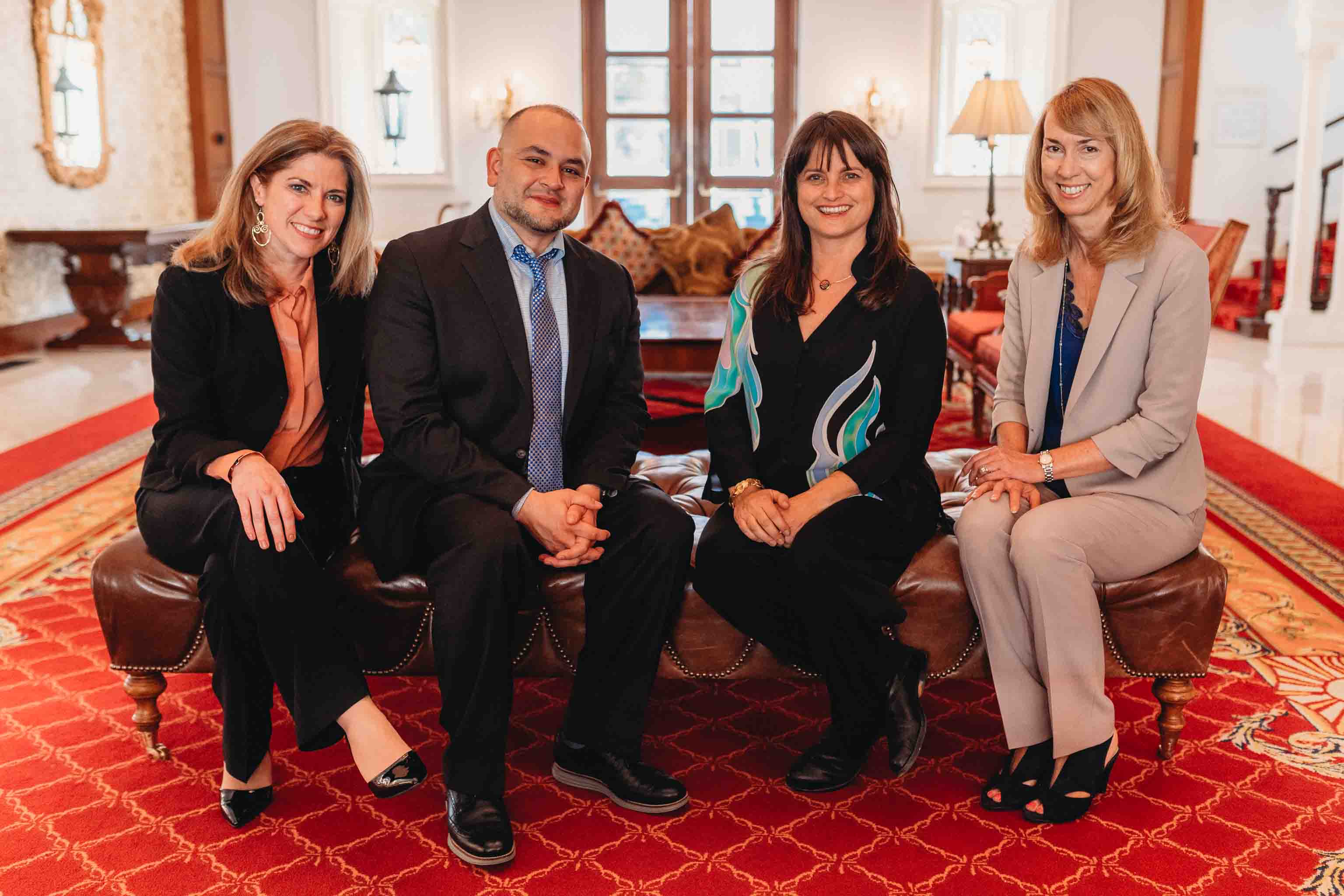
A New vision for the Pullias Center
Big changes are happening at the Pullias Center in 2019. Currently co-directed by William G. Tierney, University Professor and Wilbur-Kieffer Professor of Higher Education, and Adrianna Kezar, Dean’s Professor of Higher Education, the Pullias Center will enter a new phase on June 30, 2019 when Tierney steps down as co-director, before retiring on December 31, 2019. At that time, Kezar will step up from co-director to sole director of the Pullias Center.
In the following message, Kezar outlines her new vision for the center.
____
Dear Pullias Center members and friends,
I am humbled and honored to be taking over as sole director of the Pullias Center for Higher Education in July 2019, and to lead our amazing team of scholars that includes Tatiana Melguizo, Zoë B. Corwin, Julie Posselt, John Slaughter, Darnell Cole and Shafiqa Amadhi, plus an amazing team of postdocs and graduate students. We are excited that Adrian Huerta has joined us as a new faculty member starting this fall. His research on men of color is important and needed. With this transition, I’m excited to announce a new vision for the center that continues our tradition of impactful research while expanding its scope to address the most critical issues in higher education today.
First and foremost, the Pullias Center will persist in the work that has defined us: promoting student access and success among first-generation, low-income and underserved racially minoritized students; developing scalable and innovative solutions; fostering a strong research-practitioner-policy relationship so our research strongly connects to and impacts policy and practice; and catalyzing systemic work at the national, state and local levels. Given our location, we will continue to make California and Los Angeles a special focus of our work. We will also sustain our dedicated and supportive community of faculty, postdoctoral scholars, graduate students and research associates through serious mentorship and support for emerging scholars, welcoming new graduate students and postdoctoral scholars who want an exciting, committed group of scholars to work with.
As we move forward, I plan to take the center in a few new directions aimed at transformational and scaled changes for student success and equity, with the goal to make a major difference and contribute in unique ways that are not addressed by other centers and scholars. To this end, the Pullias Center will focus on three key areas that are transformational and scalable, making student success a reality for more students from underserved backgrounds: teaching and learning, leadership and culture change, and technology.
Teaching and learning are the core mission of educational institutions. A decade ago, we pioneered this focus through the Delphi Project on the Changing Faculty and Student Success, which has helped build a more supportive classroom for students from diverse backgrounds. We will extend and build on these efforts while strengthening the partnerships between academic and student affairs. Our work in remediation and introductory math under the leadership of Tatiana Melguizo showcases how learning spaces matter very deeply to student success and shape equity in profound ways. Similarly, Adrian Huerta’s research looks at how two- and four-year colleges and universities can better serve boys and men of color, and Julie Posselt’s work is positively transforming graduate education. In addition, Julie and I both continue to identify ways to improve STEM learning contexts.
A second area is leadership and culture change as part of disciplines, departments and overall campuses. My longstanding work on leadership and institutional change has explored how and why leadership matters to student success. If institutions do not prioritize this work and plan and allocate resources and support, little deep or real change occurs. Foundations and national associations are waking up to the realization that culture must change to sustain improvements so that institutions work for all students, not just some. Thus, leaders—both faculty and administrators—who shape the cultures of the institution, disciplines and departments, need to be the focus of study and engaged with this work of equity, diversity and inclusion. Julie’s work on disciplinary and departmental cultures and leadership and how they shape access and inclusion to graduate education is a reflection of this important new direction for the Pullias Center.
Lastly, we will focus on how technology can ameliorate equity gaps. Zoë B. Corwin’s work on digital equity uses digital tools and gamification strategies to support students in their college application journey and their transition to college. Her work examines how students and practitioners can interface effectively with technology to bolster college access and retention. To that end, we will continue to expand our development of tools toward scalable and innovative solutions that revolutionize classrooms, school culture and campus leadership.
In order to enhance our systemic work, we are bringing in new research affiliates that work at the national and state level. These national leaders will help increase our connections to policy and practice and help us continue to work systemically—taking our work out to campuses, networks and policymakers. We are pleased to announce that Lorelle Espinosa from the American Council on Education has already joined us; several other research affiliates will join us in the next few months.
We also seek to strengthen our ties with our existing research associates and alumni. With a 25-year-long history, we now have dozens of alumni who are scholars and leaders in higher education. We look forward connecting with Pullias Center alumni in ways that systemically enhance all of our collective work.
In addition, we plan to develop more collaborative work and joint publications with our partners. I have collaborated on several important joint publications in recent years with the American Council on Education, the Association of American Colleges and Universities and the National Student Personal Association. Growing these strategic partnerships and collaborations will be integral in ensuring that our research reaches more leaders in higher education.
We will continue our newsletter, keep enhancing our website with its incredible resources, host the Pullias lecture and be even more active on social media to let you know about the exemplary research and research based tools we are developing. In addition to continuing our short policy briefs and reports, we will also introduce several annual publications that target our key issues, filling niche needs for informative and timely updates. The first one we have planned is called the State of the Faculty Report, showcasing trends in research and literature for the past year. Lastly, we will introduce an annual report to more comprehensively showcase our work.
I’d like to give my sincere thanks to William G. Tierney, the founding director of the Pullias Center, with whom I’ve had the pleasure of working with the last 16 years, and co-directing the center with the last seven. I’m excited to continue building the center’s impact from the strong foundation Bill has created.
I look forward to working with everyone in the higher education community in this new role. I hope you will reach out to me with ideas about partnerships, joint publications, research ideas and other ways by which we can enhance the access and success of all students.
Best wishes,
Adrianna Kezar
